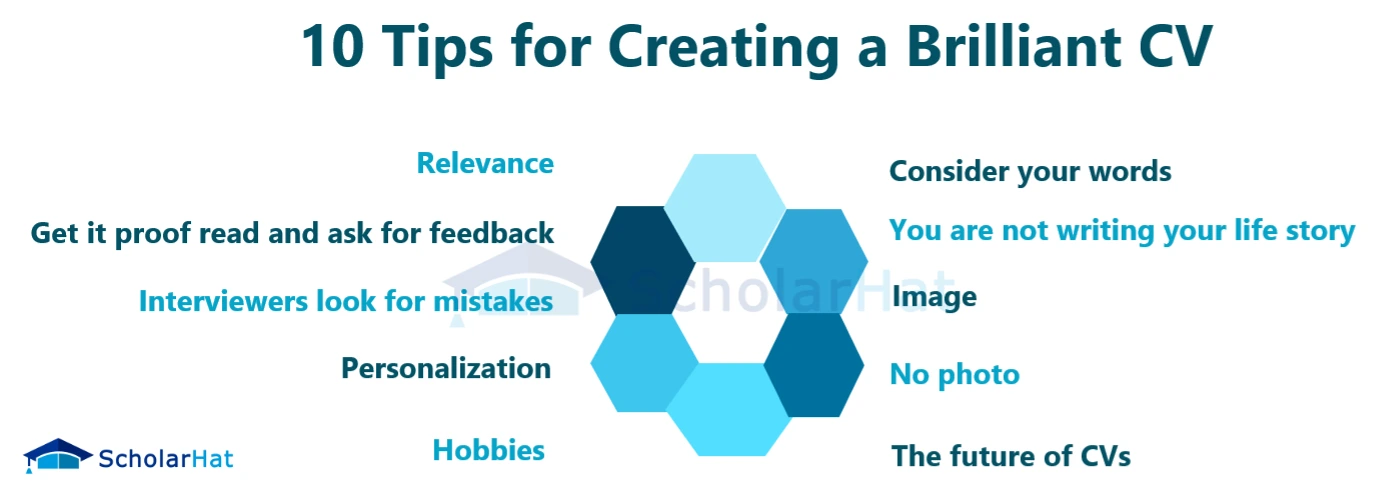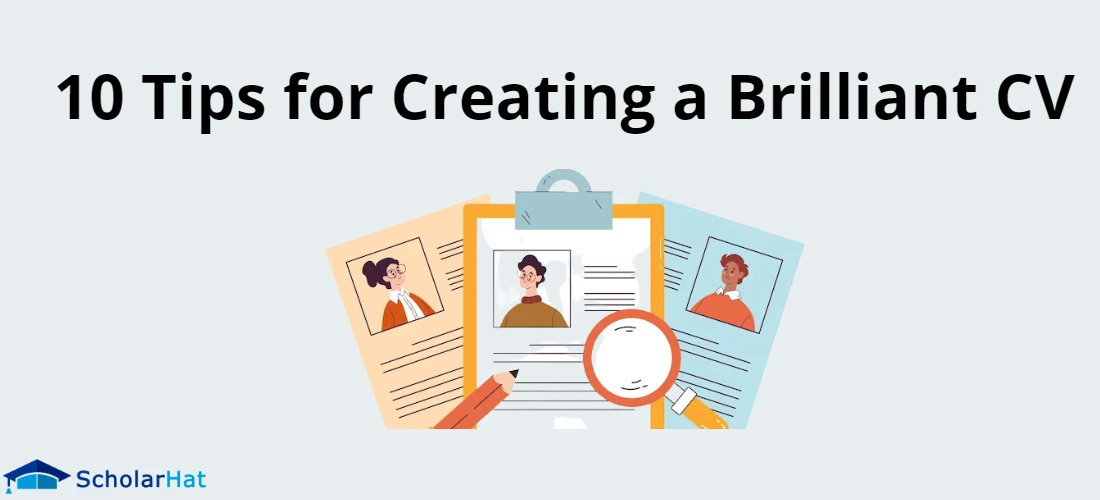18
Apr10 Tips for Creating a Brilliant CV (Curriculum Vitae)
Whether it’s a new job or your first job your CV is going to be needed, and it must not only stand out from the crowd but also be easy and clear to read.
How to ace at writing your CV?
Whether it’s a new job or your first job your CV is going to be needed, and it must not only stand out from the crowd but also be easy and clear to read. Research shows that it takes around 30 seconds for an interviewer to decide if they want to call someone for interview or not based on their CV, so clearly it must be right. (Source: Adecco Retail).The kind of things in your CV that immediately put an employer off taking things further are Clichés, obvious lies, and errors.
On the same topic whatever you do don’t copy your CV from a template or model CV connected with your work experience, interviewers and HR departments are not stupid, they can recognize a fake easily and will know it’s a copy. A recruiter friend of mine told me that in one set of interviews he was going to hold for a middle management post in an MNC he had 3 candidates with identical CVs and one man hadn’t even thought to use his real name, he just copy pasted the whole thing. So what are the things we need to consider when dealing with our CV?
10 Tips for Creating a Brilliant CV

Relevance
Is your experience and hence the information you are providing in your CV relevant to the job title/ description. Consider the job description and in your CV make sure it’s really clear that you will fit with it and deliver the goods. It’s often thought that one should send a cover letter with your CV, the best advice here is to contact the HR department in the company you’re applying to and ask whether one is required.
Consider your words
Try to avoid commonly used words like ‘hardworking’, interviewers see such words day after day and they want to see something different, a quick check of synonyms will usually give you some alternatives, for hardworking substitute diligent, think of accountable instead of reliable or trustworthy. Of course the language and vocabulary you use will depend on the job but aim for words that describe rather than just say the obvious.
Get it proof read and ask for feedback
One of the most difficult areas of CV writing is ironically writing about yourself, we seldom really know how to express our positive traits without sounding big headed. The best plan is to ask someone who knows you well to read your CV and tell you what they think of it, the person should preferably be a work colleague or a person who knows about your work background.
You are not writing your life story
Brief is best with your CV, summarize the information by selecting and reporting the main areas of relevance, additional details acan be given during the interview if required by the panel, remember that keeping a few things under your belt for the interview can be very helpful if you feel you might run out of things to say. Length wise it depends on the job and how much information you have to include but if you can get it to fit into 2 pages the interview team will be more than happy as they have to trawl through hundreds of CVs every day.
Interviewers look for mistakes
Not only are the panel looking for your accomplishments and fit for the job description they do pay attention to errors in spelling, CV format, and punctuation, so simply use auto-correct and as mentioned before get your CV proof read before 6 sending it.
Image
Your CV is you, naturally its image must be appropriate for the job but it can also be individual and reflect you. There are alternative fonts you can use, colors, where to use bold etc. All these can help make your CV stand out, however, a word of warning don’t overdo the design, don’t start using emoji’s or stickers. Unless you are applying for a job connected with art they panel don’t need to see how good you are at design. Broadly speaking International Block format, aligned to the left is the best layout to build on.
Personalization
Avoid information about your home life, like your pet dog or where you wnt on holiday, but it can be useful to mention things that relate to your personal life like taking maternity leave, of your interests outside work as these can give a good broad picture of you the person as opposed to you the employee.
No photo
Most employers don’t need to see what you look like, there is a good reason for this as a photo may influence their opinion of you based on your looks rather than your accomplishments and suitability.
Hobbies
Yes, add them to your CV but avoid things that tell nothing more than you are a human being like socializing. Team games are good as they show team work skill and dedication.
The future of CVs
Although a CV is the standard and widely accepted way of informing an employer about you there is growing evidence especially from creative fields that CVs are not the way forward. With the advances in technology and changing views within employment circles some people are sending videos of themselves talking through what would normally written in a CV. Certainly this will have an impact and make your mark but it might be too soon to recommend doing it, additionally as stated before actually seeing you may influence the interviewer aside for you your work abilities. But it is worth considering as an alternative if you feel confident about doing it, some employers will think its great others will hate it, so judge this idea on the grounds of job description mainly.
Summary
To sum up your CV should be a clear description of you and your appropriateness for the job you are applying for. A simple brief CV will carry more weight than a lengthy blow by blow account of every detail. Avoid mistakes and keep to the point. Whatever your reason for writing or updating your CV put the above points into practice and we are sure you will see positive results. Good luck.





